Specialty Coffee: a journey into unique flavours
In this article, we will take you on a journey through the world of specialty coffees, those fine beans that have obtained at least 80 points out of 100 according to the rigid testing protocol evaluation by the Specialty Coffee Association. Through this journey, we will explore the fascinating origins of these coffees, the varieties that characterize them, their unique properties and further sensory details.
An unparalleled experience for coffee connoisseurs, we invite you to explore this extraordinary world with us.
Jamaican Blue Mountain
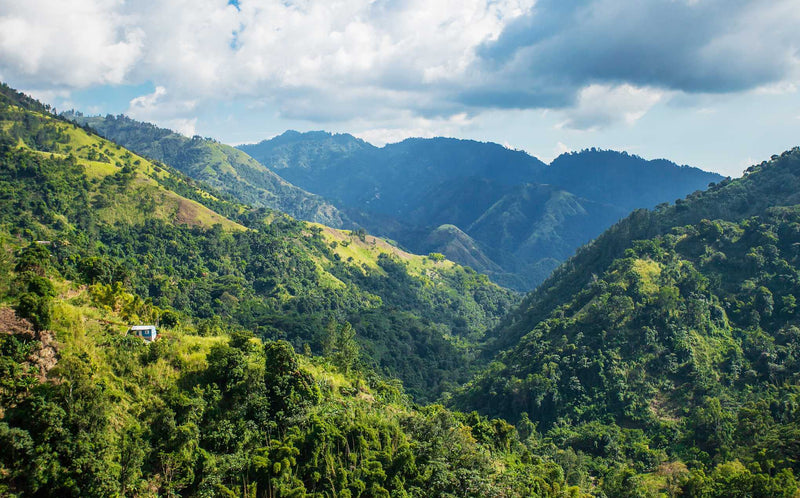
Lots: is grown in a unique region in the world, the Blue and John Crow mountains, located in eastern Jamaica. This mountain range, the longest on the island, is characterized by a special microclimate, with cooler temperatures and regular afternoon rains. These ideal conditions encourage the growth of ruby red coffee drupes, giving the coffee its signature quality.
Variety: coffee Jamaican Blue Mountain is one of the gems of Arabica worldwide, renowned for its unparalleled quality. This variety takes its name from the majestic mountains in which it grows, the Blue Mountains of Jamaica, reaching spectacular altitudes of up to 2.453 meters. Only 20% of the production of this delicacy exceeds 1.200 meters and can be referred to as "Jamaica Blue Mountains". The remainder, cultivated at lower altitudes, is categorized as "Jamaica High Mountain" or "Low Mountain".
Properties: this delicious Arabica coffee is known throughout the world for its its soft, balanced and nuanced flavour. It brings with it notes of chocolate, a delicate floral scent and a lingering sweetness that delights the palate, as well as being naturally alkaline and rich in vitamins and nutrients, making it a healthy choice for your daily consumption. Its sweetness and absence of bitterness make it suitable for all palates.
Additional Notes: each sip of Jamaican Blue Mountain coffee is a journey through a myriad of flavors. But its worldwide fame has unfortunately led to counterfeiting attempts over the years. To protect its authenticity, the Jamaican government has adopted strict laws with penalties of up to 600.000 dollars and six months of imprisonment for anyone who attempts to counterfeit this treasure. Supervision concerns the entire supply chain, from cultivation to land conditions.
Hawaiian Kona Coffee
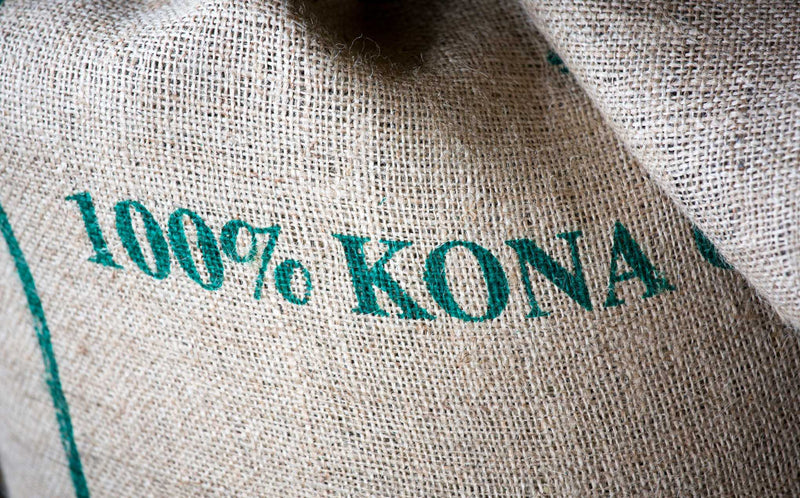
Lots: the region where this high-quality coffee grows is known as the "Kona Coffee Belt" located on the island of Hawaii, on the slopes of the Hualalai and Mauna Loa mountains, which extend between 500 and 3200 feet above sea level. Kona plantations produce coffee in relatively small batches, but of extraordinary quality. This artisanal approach to growing coffee is what sets it apart from other varieties, making it a true treasure for coffee lovers.
Variety: Kona Coffee is mainly of the Arabica variety, but what makes it truly special is its cultivation soil. This coffee grows on the high-altitude volcanic slopes of Hawaii, conditions that give the drink a unique flavor profile in the world.
Properties: this coffee is famous for its exceptional flavour, characterized by complex notes and a velvety body. These unique properties are the result of combining the Kona Coffee Belt region's extraordinary terroir and meticulous growing practices. Kona Coffee beans are harvested manually several times between August and January, and the manufacturing process includes fermentation and drying phases. This artisanal process helps develop the distinctive flavor that makes it so loved by coffee enthusiasts around the world.
Additional Notes: Over the years, Kona Coffee has faced several challenges, including an infestation of the coffee berry beetle, known as the “Coffee Berry Borer.” This infestation required quarantine and fumigation measures to protect the crop. Additionally, authentic Kona coffee must carry the "100% Kona Coffee" label according to Hawaii state laws, to ensure its authenticity.
Ethiopian Yirgacheffe
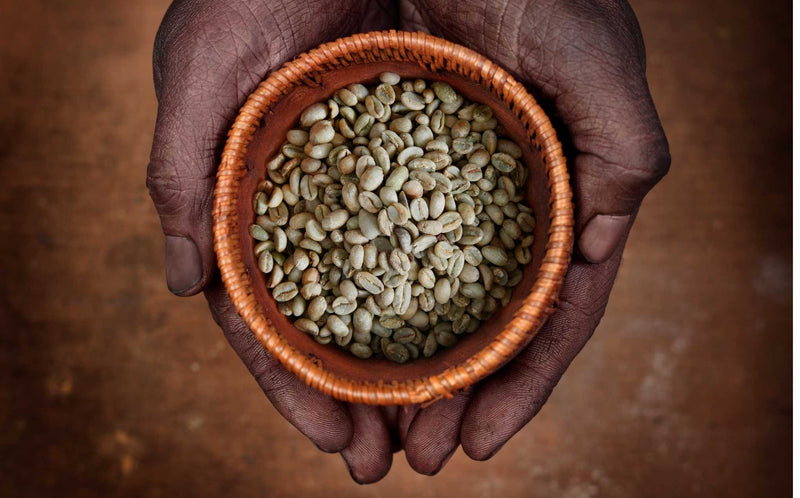
Lots: the beans are grown at an altitude between 1.700 and 2.200 meters above sea level in the southern region of Ethiopia. This high altitude gives them the title "Strictly High Grown (SHG) / Strictly Hard Bean (SHB)," meaning they grow slowly due to the altitude, allowing the coffee to develop the best flavors.
Variety: l'Ethiopian Yirgacheffe is considered one of the best Arabica coffees in the world, thanks to its unique properties.
Properties: qthese coffee beans are known for their complexity of flavour, which offers an exceptional tasting experience. Their sweetness, accompanied by floral and citrus notes, makes them irresistible for coffee lovers looking for extraordinary flavours. Some premium beans may have a slight aftertaste of dried fruit or chocolate. These characteristics make Ethiopian Yirgacheffe also ideal for preparing a refreshing cold coffee.
Additional Notes: Since Ethiopian Yirgacheffe is a high-quality coffee, it is advisable to purchase whole beans and grind them just before making the coffee. This ensures maximum freshness and the complete expression of its wonderful aromas. Furthermore, it also lends itself well to the preparation of espresso, often keeping its fruity nuances unchanged.
Panama Geisha
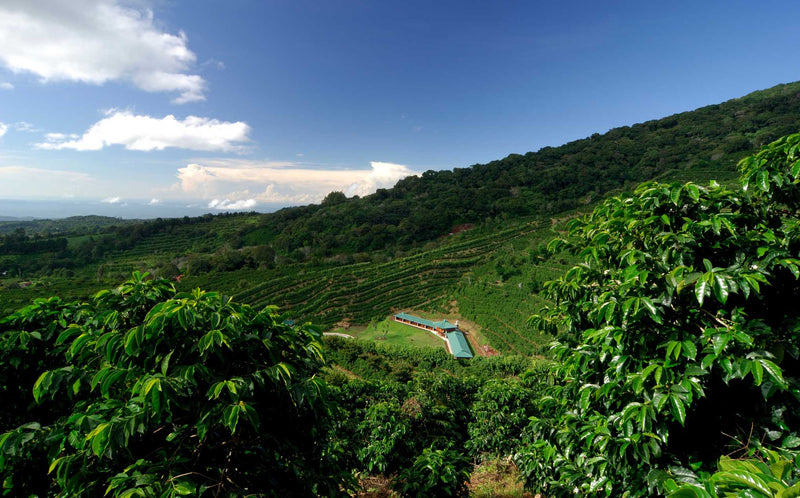
Lots: this fine coffee is grown in the mountainous regions of Boquete, in the province of Chiriqui, in western Panama . In particular, the coffee that has won prestigious awards comes from the Hacienda La Esmerelda farm, located on the slopes of the Baru volcano, at altitudes between 1.450 and 1.700 meters above sea level. This high altitude qualifies the coffee as Strictly Hard Bean (SHB), meaning the plants grow slowly and ripen optimally.
Variety: Geisha is a 100% Arabica variety, first discovered in 1931 in Abyssinia in southwestern Ethiopia and was introduced to Panama from Costa Rica in 1963. Thanks to the recent success of Geisha coffee, many Central American coffee farmers are now planting this variety.
Properties: this coffee stands out for its floral and jasmine aroma, with delicate acidity, honey and citrus notes.
Additional notes: this coffee is one of the most expensive in the world due to its complexity of flavor and its rarity.
Costa Rican Tarrazu
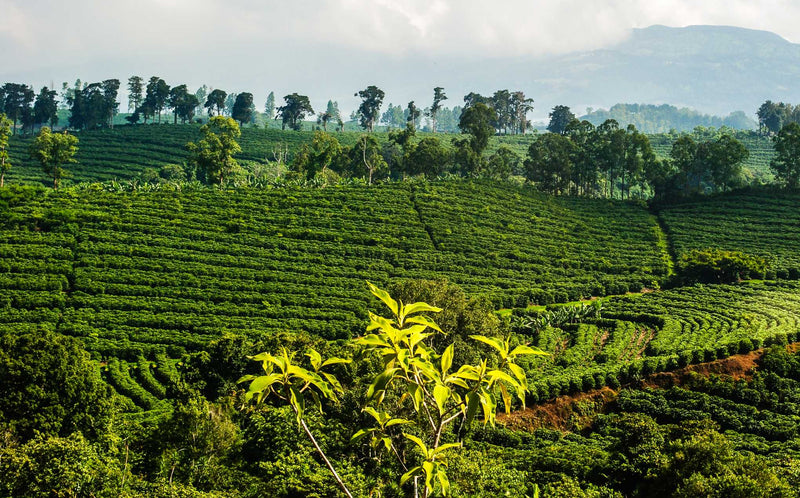
Lots: Costa Rica's Tarrazu coffee is a coffee connoisseur's delight. These lots are grown at different altitudes, which helps create a variety of unique flavor profiles. While some thrive at 1200 meters above sea level, others extend up to 1800 metres. These altitudes greatly influence the flavor characteristics of coffee, offering a wide range of sensory experiences for drinkers.
Varieties: Costa Rica Tarrazu is known for growing mainly two varieties of arabica coffee: Caturra and Catuai. These varieties are widely respected for their ability to thrive in Tarrazu's unique climatic and geographic conditions.
Properties: intense and fragrant aroma, which often evokes notes of brown sugar and aromatic notes of citrus, tropical fruit and apricot. This enveloping scent anticipates a memorable tasting experience.
Additional Notes: The ideal growing conditions in the Tarrazu region contribute significantly to the coffee's exceptional flavor profile. The optimal altitude, the favorable climate and the meticulous care in cultivation and harvesting are all elements that come together to produce a high quality coffee with a balanced flavour.
Guatemalan Antigua

Lots: the Antigua coffee region of Guatemala is renowned for the quality and quantity of coffee it produces. Situated in a valley surrounded by three volcanoes, it sits at over 1500 meters above sea level and offers ideal conditions for growing coffee: rich soils, abundant rain and sunshine, and relatively constant temperatures. But the favorable climate not only makes Guatemala Antigua an ideal place for growing coffee, but also a heavenly tourist destination.
Varieties: coffee varieties grown in the Antigua region predominantly include Arabica, Catuai, Caturra and Bourbon varieties.
Properties: Generally considered the best high-quality coffee grown in Guatemala, Antigua is known for displaying typical Guatemalan coffee qualities, which include a full body and a spicy flavour.
Additional Notes: Volcanic soil is rich in essential nutrients for coffee plants. The region is surrounded by three active volcanoes, meaning the soil is enriched with minerals from past eruptions. This volcanic soil promotes the growth of coffee plants, giving them a unique structure and flavor. The roots of coffee plants sink deep into the soil, absorbing minerals that contribute to coffee's distinctive flavor characteristics.
Kenyan AA
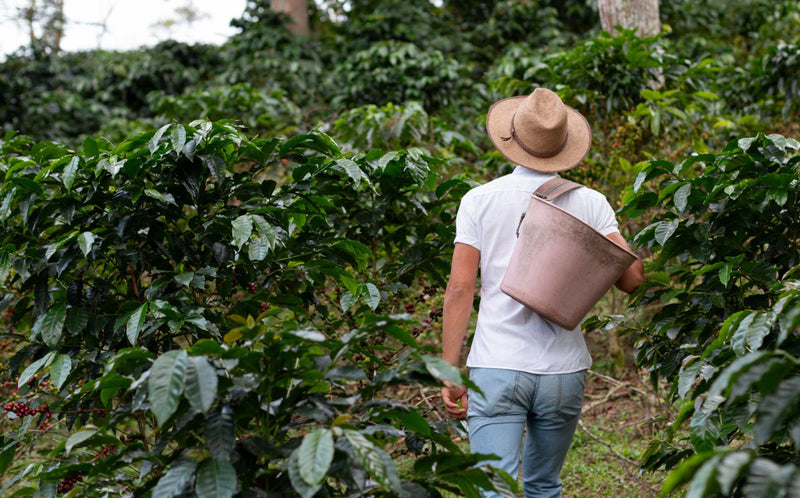
Lots: Kenya AA coffee is known throughout the world as one of the most valuable and refined coffee beans and is called “AA” due to the size of the bean. Its cultivation takes place at an altitude above 2.000 meters above sea level in the highland regions of Kenya. These exceptional conditions give this coffee a unique aromatic profile and flavour.
Variety: mainly 100% Arabica coffee beans, with a blend of local varieties.
Properties: Kenyan AA coffee is known for its lively acidity and rich flavor. It offers notes of blackcurrant, lemon and spices. The size of "AA" beans is among the largest, which contributes to their superior quality.
Additional Notes: Ideal growing conditions, including high altitude and climate variations, contribute to its unique flavor.
Sumatra Mandheling
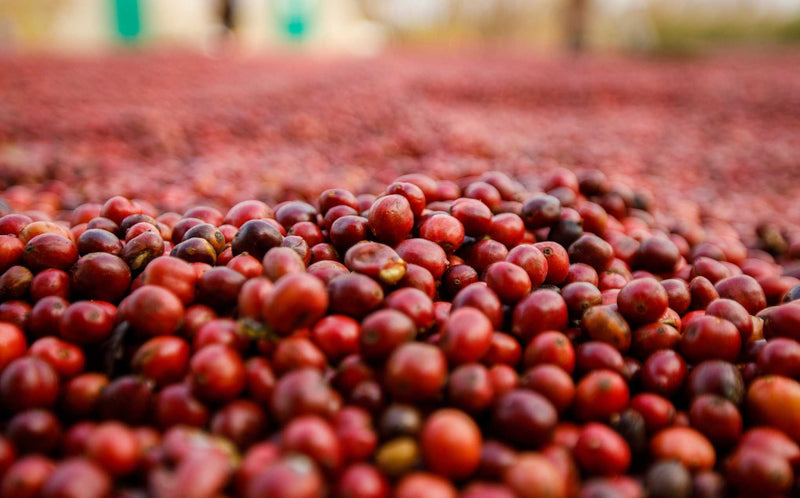
Lots: Sumatra Mandheling coffee is grown in the Mandheling region, located on the island of Sumatra, Indonesia. It is often selected from high-quality lots.
Variety: is an arabica coffee that comes in two main varieties, Catimor and Tipica. These varieties, grown in the regions of Batak, central-west Sumatra and Aceh, are distinguished by their unique characteristics.
Properties: one of the most distinctive properties of this coffee is its earthy and intense taste. Tasting notes often describe a herbaceous aroma that is unique to the region. The tropical climate and volcanic soil help develop a rich flavor that often features sweet chocolate and licorice tones. Although the cultivation altitude varies from 750 to 1.500 meters above sea level, Mandheling coffee manages to develop a full body with low acidity.
Additional Notes: The name "Mandheling" derives from the Mandailing people, located in northern Sumatra, rather than from a specific geographic region. This curious historical nuance adds further depth to Sumatra Mandheling coffee.
Brazilian Santos
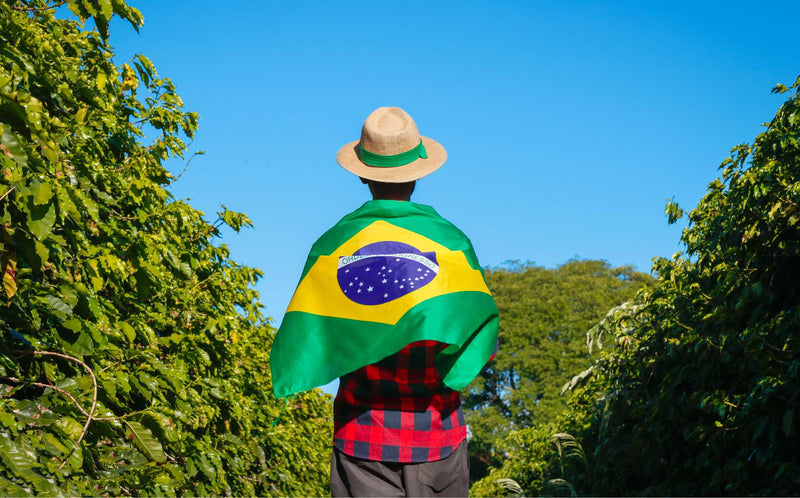
Lots: Minas Gerais is the most important Brazilian state in coffee production, with almost half of the national coffee production based in this region. This state is known for its fertile soils and high elevations, ideal for growing the country's most popular specialty coffees. Minas Gerais is home to four major production regions:
- Cerrado de Minas: This region was the first to gain Designation of Origin (Cerrado Mineiro) status in Brazil, similar to a famous wine region. Thanks to the high altitudes (800 to 1.300 meters).
- Chapada de Minas: this region has a varied landscape, with valleys often dividing the mountain areas. Mechanized production is common throughout the area, and some of the varieties grown here include Catuaí and Mundo Novo.
- Matas de Minas: Located in the Atlantic Forest, this region is predominantly populated by small farms. Temperatures are hot and humid.
- Sul de Minas: this region has an average altitude of around 1000 meters and mild temperatures. This combination has allowed the region to become an industrial hot spot within Minas Gerais. Although grown primarily on small farms, 30% of Brazilian coffee is produced in Sul de Minas.
São Paulo is home to the Port of Santos, the country's main coffee export port, and is home to two regions that produce high-quality coffee:
- Mogiana: Located in the north-eastern area of the state, on the border with Minas Gerais, it is one of the most important growth regions in the country. The famous rich red soil, perfect altitude (900-1100 meters), rugged terrain and mild temperatures produce high quality coffee.
- Centro-Oeste de São Paulo: The region includes four cities and is characterized by predominantly small and medium-sized fields. Like Mogiana, the area is hilly and has uneven terrain.
Varieties: predominantly Arabica, but also includes varieties such as and Catuai, Catuaí Rubi, Obatã, Icatu, burbon and Mundo Novo.
Properties: Santos coffee is known for its sweet and smooth taste, with notes of nuts, cocoa and caramel.
Additional Notes: The term "Santos" was created in the past, before the 1990s, when the country's government controlled the domestic market. Brazilian coffee was classified as Santos 1, Santos 2, Santos 3, and so on, as the port of Santos was, and still is, the main trading point from which Brazilian coffee was exported. Today, the expression "Brazil Santos Coffee" is used to indicate high-quality coffee, mainly of the Bourbon variety, sometimes Arabica, but never Robusta.
Tanzanian Peaberry

Lots: Tanzania is one of the largest countries in Africa in terms of surface area, and the production of Arabica coffee is of approximately 650.000 bags (over 85 million pounds) per year. Most of the coffee plants grown in Tanzania are of the Arabica variety.
Varieties: the three most common Arabica varieties found in Tanzania are N & KP, Kent and Bourbon.
Properties: this coffee has a vibrant flavor with fruit notes and moderate acidity. What makes it unique is the shape of the beans, called "peaberries", which contain only one seed. The peaberry seed is said to produce a better tasting cup of coffee because the single seed has had the opportunity to absorb all the nutrients and flavors that the coffee cherry has produced. Instead of splitting the good qualities between two seeds, the peaberry gets all the great aspects.
Additional Notes: In the past, Tanzanian coffee was collectively called "Kilimanjaro coffee" abroad, regardless of where it was grown. Now, thanks to well-governed cooperatives leveraging their bargaining power to improve market access and quality, producers and exporters are working towards better traceability and quality in regional coffee production.
Colombian Supremo
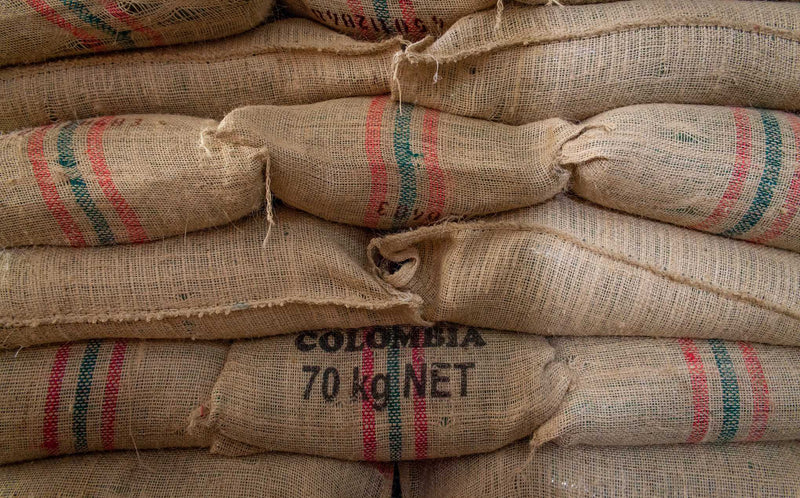
Lots: Colombian Supremo coffee comes from the fertile lands of the Colombian Andes, a place famous for its coffee production of high quality and is often selected from premium lots. Colombia is the second largest coffee producer in the world ,
Variety: mainly Arabica, with varieties such as Typica and Caturra.
Properties: Colombian Supremo coffee is known for its bright acidity and balanced flavor. It offers notes of caramel, citrus and fruit.These properties make it suitable for different preparation methods, from French press to espresso.
Additional Notes: The history of Colombian coffee is rich and fascinating. It is said that coffee arrived in Colombia in the 18th century thanks to Jesuit missionaries. Over time, coffee has become one of the country's top exports, with a variety of flavor profiles and unique cultivation techniques.
Mexican Altura
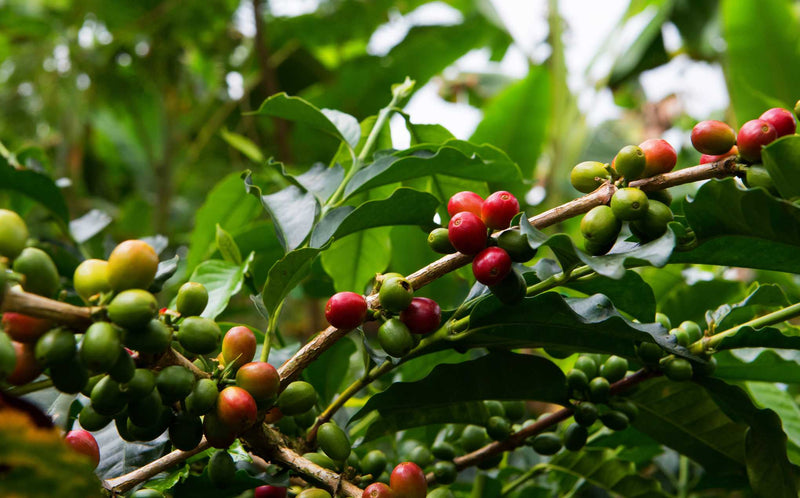
Lots: Altura Mexican Coffee comes from the southern states of Oaxaca and Chiapas, Mexico, home to mountain ranges that offer high altitudes and climates ideal for growing coffee. The vast majority of farms are family-run and own less than 10 hectares of land.
Variety: mainly Arabica, with varieties such as Typica and Bourbon.
Properties: Mexican Altura coffee is characterized by good acidity and a sweet flavor with notes of chocolate and nuts.
Additional notes: the coffee harvest begins in autumn and extends until spring, guaranteeing maximum maturation of the beans. This process helps create a cup of coffee with a flavor reminiscent of toasted hazelnuts. These distinctive characteristics make Altura Mexican Coffee an exceptional choice for coffee lovers seeking a high-quality beverage with nutty undertones that will delight the palate.
These are just a few examples of fine coffees from different parts of the world, each with its own unique characteristics. Their high quality makes them highly sought after among coffee lovers.
Cellini Caffè "Delizia e Meraviglia" - New Blends of Specialty Coffee Beans
Continuing the journey into the world of coffees, it is possible to discover further aromas and flavors and appreciate the subtle nuances of taste that make them so appreciated by true coffee connoisseurs. In this exploration, we delve into Cellini Caffè's new specialty coffee blends, "Delizia" and "Meraviglia". These blends are much more than just drinks; they are true sensorial works of art, the result of a passion for coffee which translates into extraordinary tasting experiences.
Delight
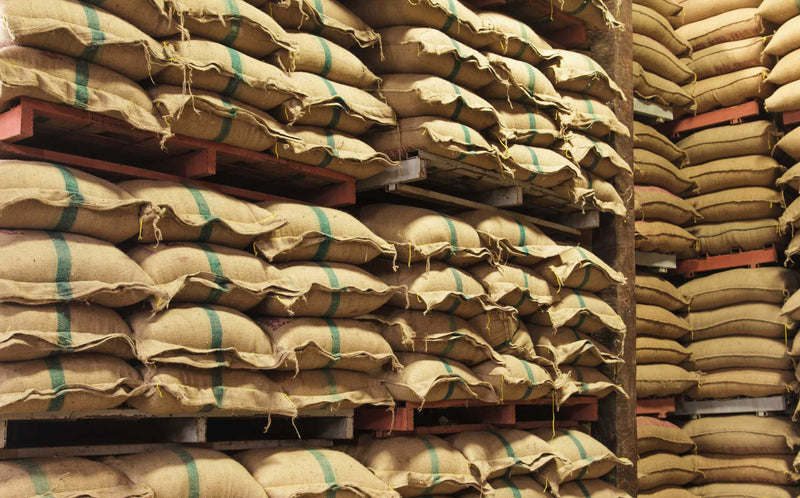
Origins: Cellini's Delizia coffee is a blend coming from the regions of Colombia, Ethiopia, Guatemala, Brazil and El Salvador, each contributing its uniqueness to the overall profile.
Varieties: Most commonly used include Caturra, Bourbon, Catuai, Colombia and Heirloom, creating a symphony of flavors and aromas.
Properties: the washed processing and the medium-grade slow cycle roasting give the Delizia a medium body with a clear and precise flavour, with notes of bitter cocoa and a refreshing citrus aftertaste that captures the attention of the most demanding palates.
Additional Notes: the Delizia is a true joy for coffee lovers looking for a drink with a distinctive character and flavor profile balanced.
Wonder
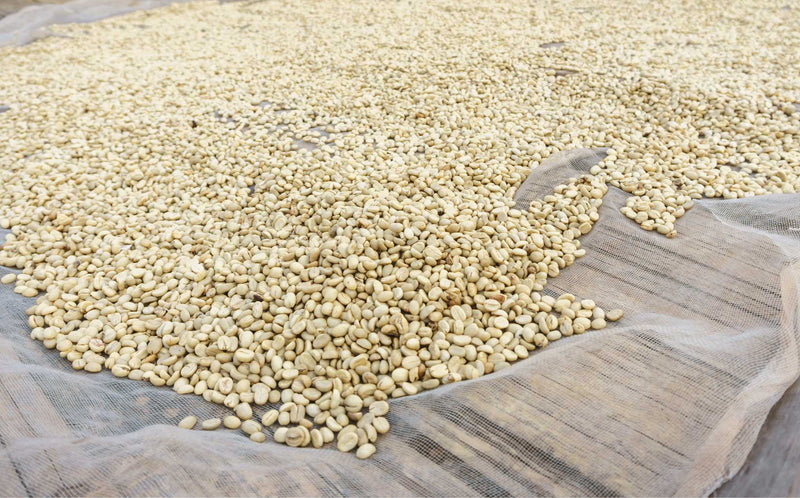
Origins: Cellini's Meraviglia blend is the result of the meeting between Mexico and India, two countries with unique coffee-making traditions.
Varieties: they are Caturra, Bourbon, Catuai and Robusta.
Properties: the washed processing and medium-grade slow cycle roasting give the Meraviglia a full and balanced taste with a delicate fruity aftertaste and notes of cereals that make every sip an experience enveloping and satisfying.
Additional Notes: Meraviglia is an adventurous coffee that takes your senses on a journey between different cultures and intriguing aromas, a true hymn to the wonder of specialty coffee.
These new blends from Cellini Caffè, Delizia and Meraviglia, represent the best of the coffee traditions of different parts of the world, bringing unique and unique flavors to the cup engaging. Whether you prefer the clear and precise flavor profile of Delizia or the fruity intensity of Meraviglia, the Cellini specialty coffee experience will be an authentic pleasure for your senses.


